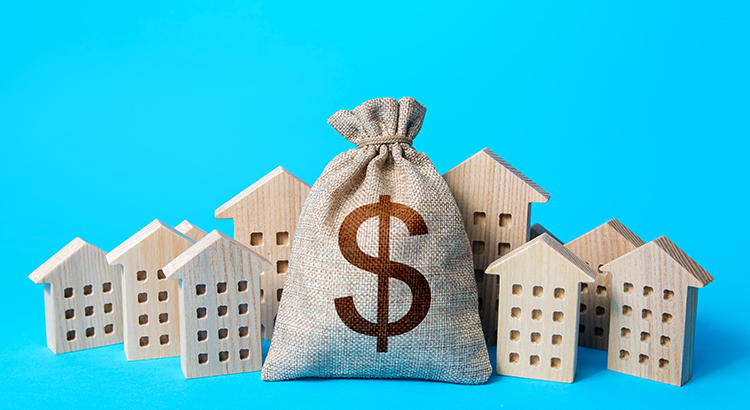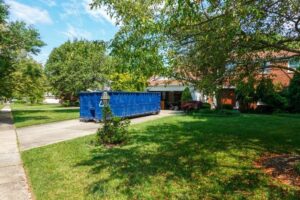Profit Flipping Houses in Any Type of Market. The great thing about residential real estate investing is that profitable deals are always available no matter which direction the market goes. How to Profit Flipping Houses in Any Type of Market.
In this article learn how to profit flipping houses in any type of market.
Every fix & flip active investor loves an appreciating market! But experienced investors understand that there are profits to be made in a flat market and even in a declining market.
Here’s how this works in each market and how investors can capitalize in any market condition.
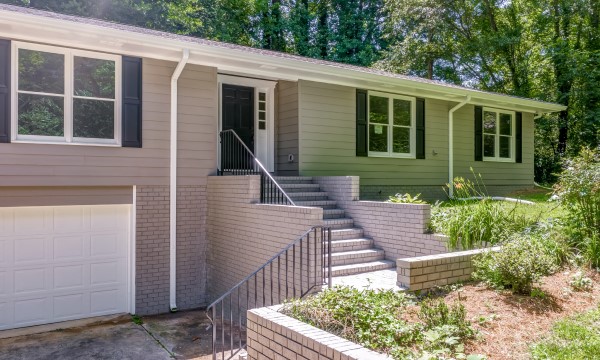
Appreciating Market
Most people understand that money can be made flipping houses in a hot market. In a super-hot market it is easy to understand that a house purchased today will be worth more money the next month even when little or no improvements are made on a property.
Unfortunately, many inexperienced investors jump in when the market is hot. They do minimal or incomplete repairs and cosmetic upgrades (“lipstick on a pig”) then try to re-sell the house for a quick profit. This is the type of unscrupulous get-rich-quick activity that gives the home-buying public a bad taste in their mouth about real estate investors.
The point here is that it is comparatively easy to make money flipping houses in a super-hot market, but it’s not without significant risk.
The risks to doing fix & flip single-family house deals can kill profits, even in a hot market.
It’s easy for investors to become complacent and get carried away thinking that they will always make a profit on any house they buy, but that is not true. Some investors get caught overpaying and lose money on deals.
Avoid Hot Market Assumptions
A great example of this irrational assumption of “always making profits in a hot market” is the iBuyer debacle of 2021, especially Zillow, which suddenly announced in November 2021 that they are getting out of the house buying business.
The big iBuyer companies, while having deep pockets, have not always been able to renovate homes efficiently and profitably. There are always risks to be managed.
For example, labor and material shortages were a part of the equation in the 2021 fix & flip residential real estate market. It’s one thing to have access to a lot of capital to buy houses, but it’s something entirely different to manage single family house renovation projects profitably. (Deep pockets just means you can afford to make a few mistakes and lose money on, for instance, 10% of your deals. But lose money on too many, and you’re out of business. Like Zillow.)
Due Diligence is Important
In order to manage risk, it’s always best practice to finalize an acquisition after due diligence has been completed (see Five Important Due Diligence Tasks for Single Family House Projects).
Simply buying houses in a hot market is no guarantee of profitability. The condition of the market is no indicator of the condition of the house.
However, with proper due diligence and good project management, an appreciating market is a good time for making profits with fix & flip single-family house deals.
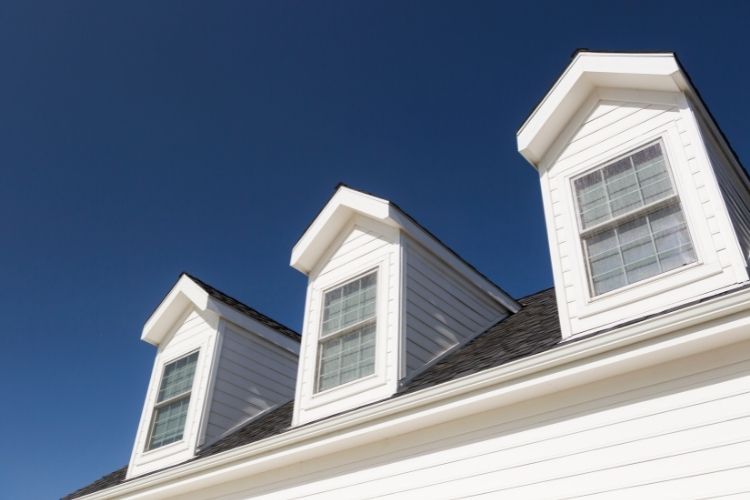
Sideways Market
A sideways market, or a flat market, is one where house prices remain stable without significant appreciation or sharp decline in home prices.
Flat Housing Prices
It should be noted that even when house prices are stable, there normally is a cyclical change in pricing depending on the time of the year. Usually, buyers come out in greater number in the spring and house prices rise slightly. In the winter months, a slight decline in prices will be seen. This is a normal, annual cyclical trend.
In a long-term (several years) sideways market, there may be a slight appreciation or decline year-over-year, depending on other market conditions (for example, a location that is economically stressed vs a location that is economically stable), or on broader economic conditions (such as inflation—if inflation is at 6% for the year and your house “appreciated” by 6%, did you really make any money? Nope)
How to Profit Flipping Houses in Any Type of Market
While sellers always object to what they call “giving the house away” to a greedy investor who will “make a killing” on the deal, sellers in a stable market usually know that prices aren’t going up quickly. For this reason, negotiating a deal that makes sense for the investor is easier compared to sellers in a super-hot market who almost always over-estimate both the “as-is” and “after repair” value of their house.
The key to making profits in a stable, flat market is to buy at a price where profits are solely dependent on the actual value that one can add rather than relying on appreciating values in a hot market. Since this is about adding value through rehab work, this strategy also depends heavily on having the right teams of experienced contractors and established supply lines for materials; and also efficient financing solutions already in place.
Exit Strategies
Having multiple exit strategies is also important in case the market takes a downturn while rehabilitating the house. [See Understanding Risk for Single Family House Renovation Projects]
A stable market provides a lot of opportunities for experienced investors to profit doing single-family house deals. Many investors who only work in hot markets get out when prices stabilize because they don’t know how to profit without dramatic price increases month over month. This creates more opportunity for those who can get off-market deals at the right price in a sideways market because there is less competition from other investors who are looking for deals.
Now let’s look at how to profit flipping houses in any type of market, including a downward market.
Declining Market
A declining market has challenges but provides opportunity for profits, long-term capital appreciation, and wealth creation. When everyone is running away from the market, the knowledgeable, experienced, active real-estate investor is snatching up great deals.
Combined with an overall economic downturn, two things happen to single-family houses:
- prices drop
- property conditions decline
Many homeowners cannot keep up maintaining their properties during hard times. Declining property conditions further accelerate price drops.
How to Profit Flipping Houses in Any Type of Market
These conditions create motivated sellers. This is the opportunity for the investor to buy properties at a deep discount. More deals can be found, so with access to capital, the investor can increase the volume of deals acquired during a declining market. Hard times and more people selling could also mean an increase in the pool of rental tenants, so (depending on your area) this could be a good time for a buy-and-hold rental strategy, or even rent-to-own (where you profit from a few years of rent and appreciation, and simultaneously help your tenant/buyer over a rough patch).
Often people have a doom-and-gloom attitude when the market is declining. But the investor who is experienced in solving real-estate problems with a positive attitude can capitalize on an abundance of opportunities during this time for negativity in the market.
Stick to the Fundamentals to Protect Capital and Secure Profits
The fundamentals hold true in a declining market: due diligence, including market analysis, is paramount prior to being committed to making a purchase on any property. One should never shortcut the due diligence process!
Multiple exit strategies are always important with single-family house deals and a downward market is no exception. Again, this is probably the time fix & flip investors should plan on holding a greater percentage of properties as rentals for cash flow and significant future upside equity.
Here is the key to buying a fix & flip property in a declining market: buy at a deep enough discount that the property can be resold for a profit after repairs and upgrades have been completed. The typical costs for rehabilitating a property obviously must be calculated, but one should also understand the value depreciation that takes place during the renovation and marketing period. And be ready to convert the property from a re-sale to a cash-flowing rental, if necessary, to both profit and protect capital.
Managing Black Swan Events
What should investors do during a “black swan” event? What if the bottom drops out of the market and prices crash while capital is tied up on one or more properties? What if something like the global financial crisis and banking collapse of 2008 happens again?
These are times where risk management, multiple exit strategies, and property due diligence will pay off.
Real Estate Market Crash
A sudden crash in the real estate market presents serious challenges, but it doesn’t mean a total loss and could result in a total recovery of capital with profits over time.
Time is the key to recovering from a crash. Is real estate ever worthless with no hope for recovery? It’s hard to imagine circumstances where at least insurance won’t cover the loss (see Acts of God in Real Estate).
In most circumstances, real estate investors can fully recover, and even profit, from a black swan event. Here are two scenarios to illustrate this.
Hold current properties as rentals
A market crash will probably see a significant loss of value of all properties. However, holding the property as a rental will generate income. Rent rates may even go up during economic hard times. The property can be sold sometime in the future for a full recovery of capital and profit.
Buy more rentals
This could be the opportunity of a lifetime to build a significant portfolio of cash-flowing rental properties. Investors who have capital (or access to capital) can create significant wealth after a market crash. This is a good time for passive and active investors to work together as co-investors for upscaling the acquisition of single-family houses.
How to Profit Flipping Houses in Any Type of Market
Hopefully now you have a better understanding how to profit flipping houses in any type of market.
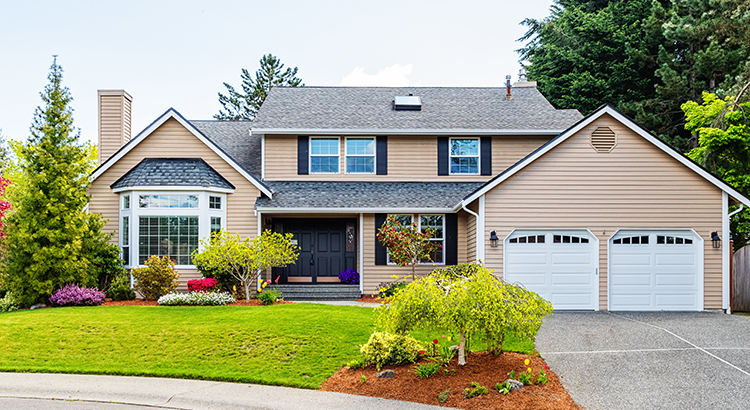
Conclusion: How to Profit Flipping Houses in Any Type of Market
Every type of market – up, down, or sideways – can and should be profitable for investing in single family houses fix & flip projects. But you need multiple strategies, or the input of others with experience in multiple markets. Understanding market conditions, performing proper due diligence, and having multiple exit strategies mitigates risk and creates consistent profits.
Home rehabilitation projects take a lot of time and expertise to profit. Not everyone can or should be an active fix & flip investor. “Passive investors” can co-invest with experienced, active investors to enjoy profits in every type of real estate market.
Metro Atlanta Housing
Alpha Dog Capital has been investing in the Atlanta housing market since 2010 when home prices were at the bottom. We have learned to profit under every market condition. Our preferred strategy is fixing and flipping single-family houses for capital appreciation.
Book a Call
Visit our contact page to contact us or schedule a call with John Marion to learn more about how to profit flipping houses in any type of market.
https://calendly.com/johnmarion/alpha-dog-capital-intro-call
How To Get Started
Sign Up
The first step to invest with us is to fill out our Interest Form. We'll connect and discuss your goals, then we'll find the best investments to help you meet these goals.
Invest and Enjoy
After you invest you can just sit back, relax, and receive quarterly cash flow payments from your passive investments.

